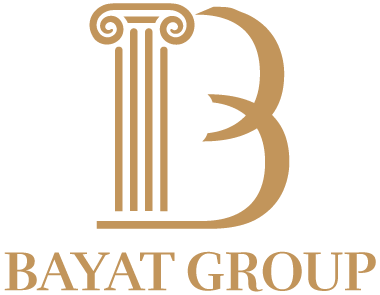The number of Citizenship by Investment (CBI) applications is increasing permanently, as investors’ trust in CBI programs is preserved due to the transparency and straightforwardness of the whole application process. Plus, successful and wealthy people from all around the world have always been facing objectives of free international travel, creation of some kind of ‘back up plan’ for the whole family against possible risks, access to better health care or education and these, on their turn, fuels the demand on alternative residency and citizenship by investment (RCBI) programs.
Passports are not commodities to be sold in markets, and seekers of ‘golden passports’ or ‘golden visas’ have to comply with the strictly defined criteria. People with a bad reputation and criminal past, as well as, Politically Exposed Persons (PEP) and individuals with travel and entry restrictions, who might pose a potential national security threat for the host country, are not allowed to apply for the CBI programs. Each CBI applicant has to undergo a thorough Due Diligence (DD) and background checks during the application process. Furthermore, prior they start dealing with banks or other financial institutions in the new host country, KYC/AML (know your client/anti-money laundry) procedures are performed.
Governments, in general, and the CBI Units, in particular, perform internal and external Due Diligence checks. CBI applicants are asked to acquire police certificates from their original countries provide the authorities with the fingerprints and biometric data.
In many jurisdictions, strict anti-terrorism and AML legislation have pushed authorities to impose restrictions on certain nationalities and persons to enroll in the CBI program or transfer money from or to specific countries.
Countries are trying to make CBI programs even more transparent not only for foreign investors but for the domestic population as well. For instance, governments of the Caribbean countries with CBI programs are demonstrating openness and accountability by regularly publishing reports on the spending of the CBI funds. The Caribbean CBI programs are designed in a way to safeguard the clear line between transparency and confidentiality. Personal details of new CBI citizens are not disclosed in the Caribbean countries, but they are subject to a stringent vetting process, mainly performed by third parties.
Frequently, many investors have legal and moral grounds for keeping possession of a second passport in secret, and the Caribbean governments are trying to share this information only with a very limited number of organizations. In general, countries decide the margins of confidentiality and transparency on their own. Some governments repeatedly update open information on the raised investment but do not indicate the origins of investors, while others do. Malta is annually publishing a list of new citizens but does not distinguish those who acquired citizenship through the CBI scheme from those who had obtained citizenship through ordinary naturalization.
In order to find out how transparent a CBI program is, one should answer the following questions:
- Are the statistical data on submitted and approved CBI applications and names of the applicants, in addition to the countries of origin, are disclosed?
- Do the authorities publish information on preferred investment routes and the amounts of funds raised through them?
- How do the authorities report on the spending of the CBI funds, and what are the expenses of the program’s international promotion?
- Who is in charge of applicants’ background checks and performing Due Diligence – governmental agencies, intermediary firms, third-party professionals, or a combination of them?
- Are the eligibility criteria for the program clear and objective?
Transparency is not just publishing statistical data, and it includes rules and guidelines, according to which the CBI application process is performed and candidates are approved or rejected. Each applicant should know exactly what the requirements are and which factors can influence the application’s success or failure. All procedures should be clear and straightforward, not leaving space for corruption or other wrongdoings.
Almost all CBI programs require the applicants to prove the legal sources of invested funds. Applicants are also screened through various international databases, and any red flag can cause application rejection. Industry stakeholders stress that the most transparent CBI regulations are in Malta, which not only publishes the names of the new citizens but also reports on raised funds, approved and rejected applications (Malta has the highest CBI application rejection rate), and performs auditing of the program by the regulator. Experts argue that independent auditing is crucial for making sure that the program is not abused.
So far, there are no unified standards for citizenship by investment programs, and particular jurisdictions may have their own characteristics. Authorities in the Caribbean pledge that their CBI programs will remain transparent and effective at evaluating investors for granting citizenship. It is the highest priority for the Caribbean governments to keep their CBI programs’ integrity.

